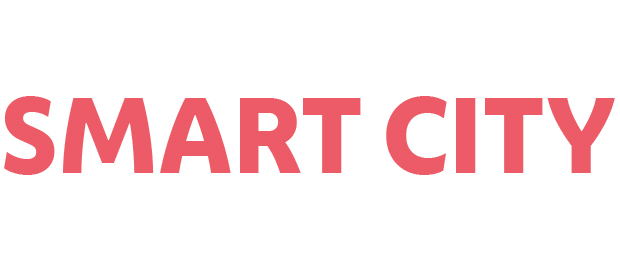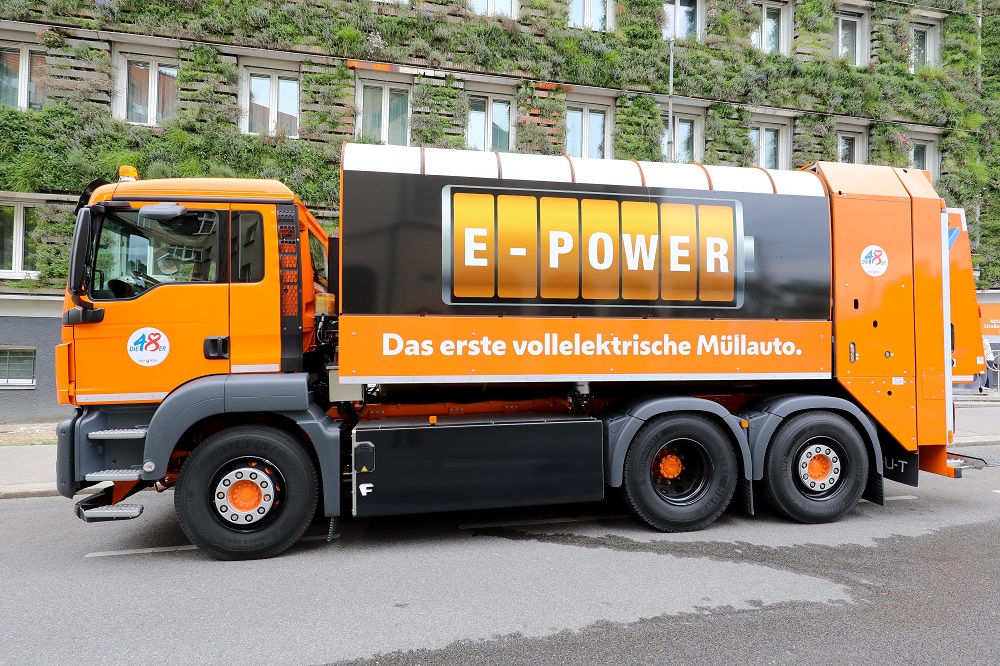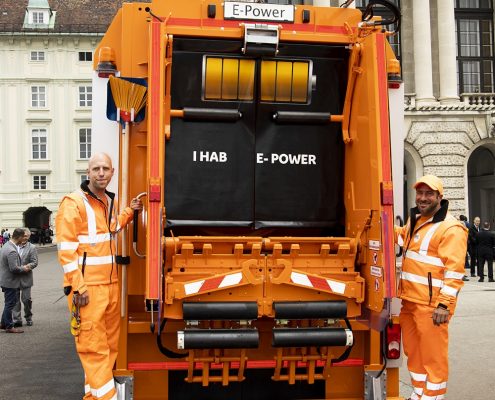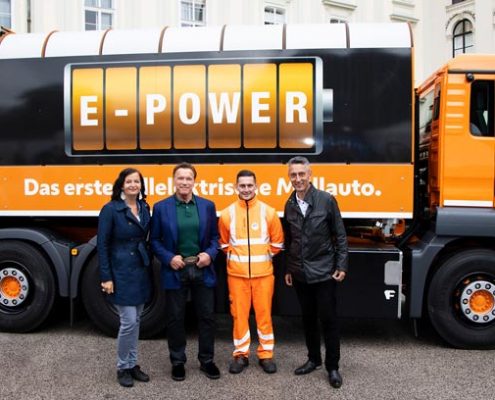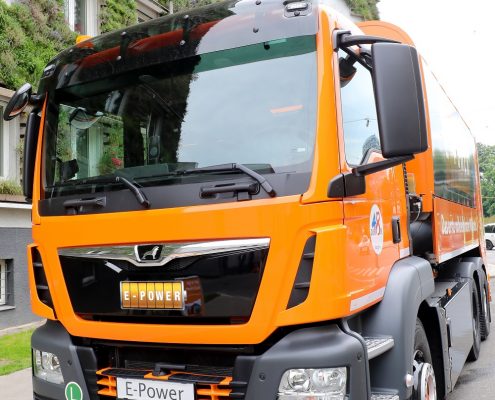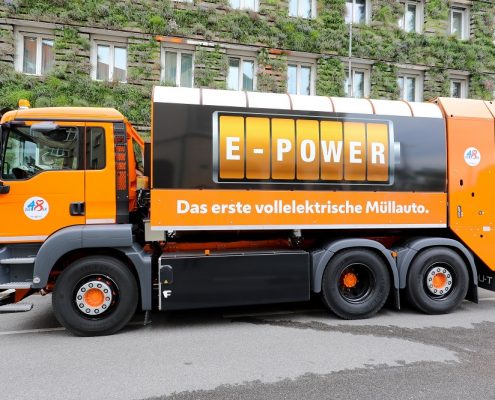The City of Vienna has commissioned Austria’s first ever fully electro-powered waste collection vehicle in cooperation with general contractor MAN and subcontractors MUT and Framo. It is designed to use 100% battery power, both for its drive engine and for the waste collection and compacting unit. As a result, the vehicle produces zero emissions and has significantly lower noise levels during routine operation. The new e-vehicle is in pilot operation on a number of routes, collecting various types of waste (e.g. residual waste, paper for recycling, etc.). The innovative truck was officially presented to the public for the first time at the R20 Climate Conference in Vienna in 2019.
100% e-power: not available off the shelf
To date, the only vehicles on the market with fully electro-powered engines have been cars or vans. An initiative by the Municipal Department for Waste Management, Street Cleaning and Vehicle Fleet (MA 48) has now resulted in this fully electro-powered waste collection vehicle. To produce the vehicle, e-truck manufacturer Framo converted a conventional truck cab mounted on a MAN waste collection truck chassis to electric operation. MUT (Maschinen – Umwelttechnik – Transportanlagen GmbH) then added the waste collection and compacting unit. The truck’s lithium-ion battery has a rated capacity of 230 kWh, providing a charge life that should be sufficient for a standard daily waste collection tour. The vehicle is designed to have a range of at least 100km in full operation on a single charge. Thanks to an integrated charging system that allows for on-board AC to DC conversion, its battery can be charged using a 400V industrial power socket. This increases the truck’s flexibility quite considerably, given that 400V industrial sockets are available in every MA 48 depot. There is no need for a separate charging unit.
Compliance with the EU Clean Vehicles Directive
The vehicle’s twelve-month trial operation is being monitored by a team from TU Wien (Vienna University of Technology). The researchers are studying the performance of the prototype vehicle and its battery at various temperatures and on different routes. Smart City Wien will use the findings from this trial phase as the basis for the future strategic planning of its vehicle fleet. The City of Vienna is thus already taking steps to implement the EU Clean Vehicles Directive, which stipulates minimum standards for light utility vehicles, trucks and buses that must be complied with in future public procurement and contracting procedures.
Contact
MA 48 – communications and public relations
E-Mail: oa@ma48.wien.gv.at
Website: www.wien.gv.at/umwelt/ma48/fuhrpark/elektro-muellsammelfahrzeug.html
This post is also available in: German

